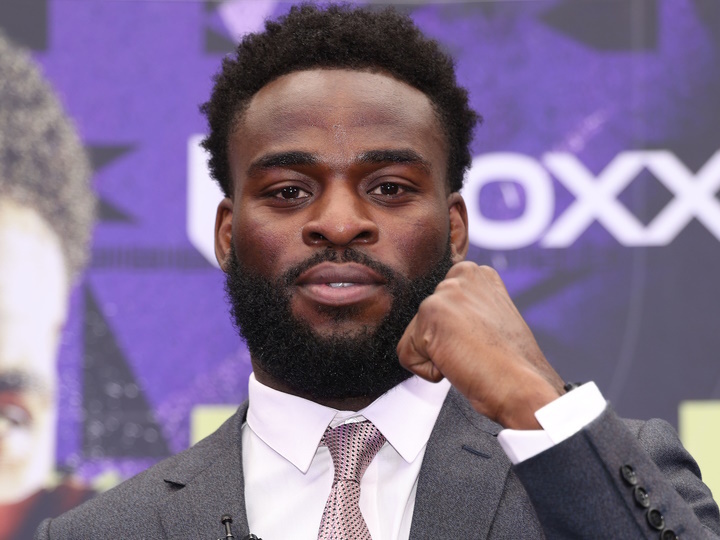The CEO of Matchroom Boxing feels his company did everything to keep Joshua Buatsi a happy and active fighter.
Buatsi, the highly regarded British light heavyweight contender, made headlines this week when he announced a return to the Sky Sports platform under a long-term promotional agreement with Sky’s chief content provider, Boxxer.
The announcement marked a symbolic end to Buatsi’s longtime promotional relationship with Eddie Hearn’s Matchroom, which had signed Buatsi out of the 2016 Olympics.
In a press conference on Wednesday in London, Buatsi explained how one of the biggest motivating factors for returning to Sky was a desire to be seen on national television. Matchroom, which used to be the key boxing partner for the media conglomerate, is in the midst of a multi-year deal with DAZN, the subscription streaming platform. Whereas Sky is available across linear television, DAZN is an app that can only be accessed through the Internet. (On Thursday, DAZN announced its entry into linear television with its own channel on Sky—much to the chagrin of existing annual-pass users of the app, who apparently will not have access to the channel.)
Buatsi also voiced his displeasure with his relatively inactive boxing schedule for the past few years under the Matchroom banner. He fought only once last year, a competitive fight with countryman Craig Richards in May.
On Thursday, Frank Smith, the CEO of Matchroom, responded to Buatsi’s claims of inactivity, suggesting that Buatsi himself was to blame for his relative inaction inside the ring.
“There’s been delays throughout his career,” Smith told Pro Boxing Fans. “I saw him say, ‘I was always training,’ but Josh would go on holidays or he would want a 14-week camp or 12-week camp out with (trainer) Virgil (Hunter in the United States) and the timeframes. We always wanted him active. We always wanted him to fight every four months or whatever it was and keep him busy. So, it was frustrating for us as well because we invested in his career and we know how to build fighters. So that was a frustration for us.”
“I was disappointed and upset really, I guess, about some of the ways it was portrayed yesterday, and some of the messaging,” Smith added. “I feel like we had a good relationship with Josh. I feel like we did a good job over the five or six years we were with him. We built together from his professional debut and offered him those big opportunities. We have to move from there. We have to focus on the stable of fighters we have with us.”
Buatsi's move to Boxxer is one of a number of high-profile defections that Matchroom has experienced in recent months. Lawrence Okolie, the cruiserweight titlist, also left Matchroom for Boxxer.
Smith also responded to claims that Buatsi felt he was being strong-armed by Matchroom during negotiations between him and light heavyweight titlist Dmitry Bivol. Buatsi apparently bristled at the opportunity, in part because one condition required him to re-sign with Matchroom, even though, as Hearn put it, Buatsi would have made a career-high £1 million purse. (Buatsi's trainer, Hunter, moreover, has publicly insisted several times that he does not think Buatsi is ready to face Bivol at this moment.) For Smith, who says that contract options are industry standard, he believes it should have been a no-brainer for Buatsi to accept the challenge.
“I guess he means that we wanted to sign an extension,” Smith said. “We’re getting him an opportunity at that point for a voluntary challenge for the world title against probably the pound-for-pound [top] fighter. It’s very standard. It’s not untoward in the business. If you ask anyone that’s what they do. Just like a long-term deal he signed now [with Sky].
“‘Here you go, here’s an opportunity to fight for a voluntary challenge against Dmitry Bivol,’” Smith said. “It’s not 'caveats.' It’s part of the deal. It’s very standard. It’s every fight, you can imagine, has that.”


ADD COMMENT VIEW COMMENTS (24)